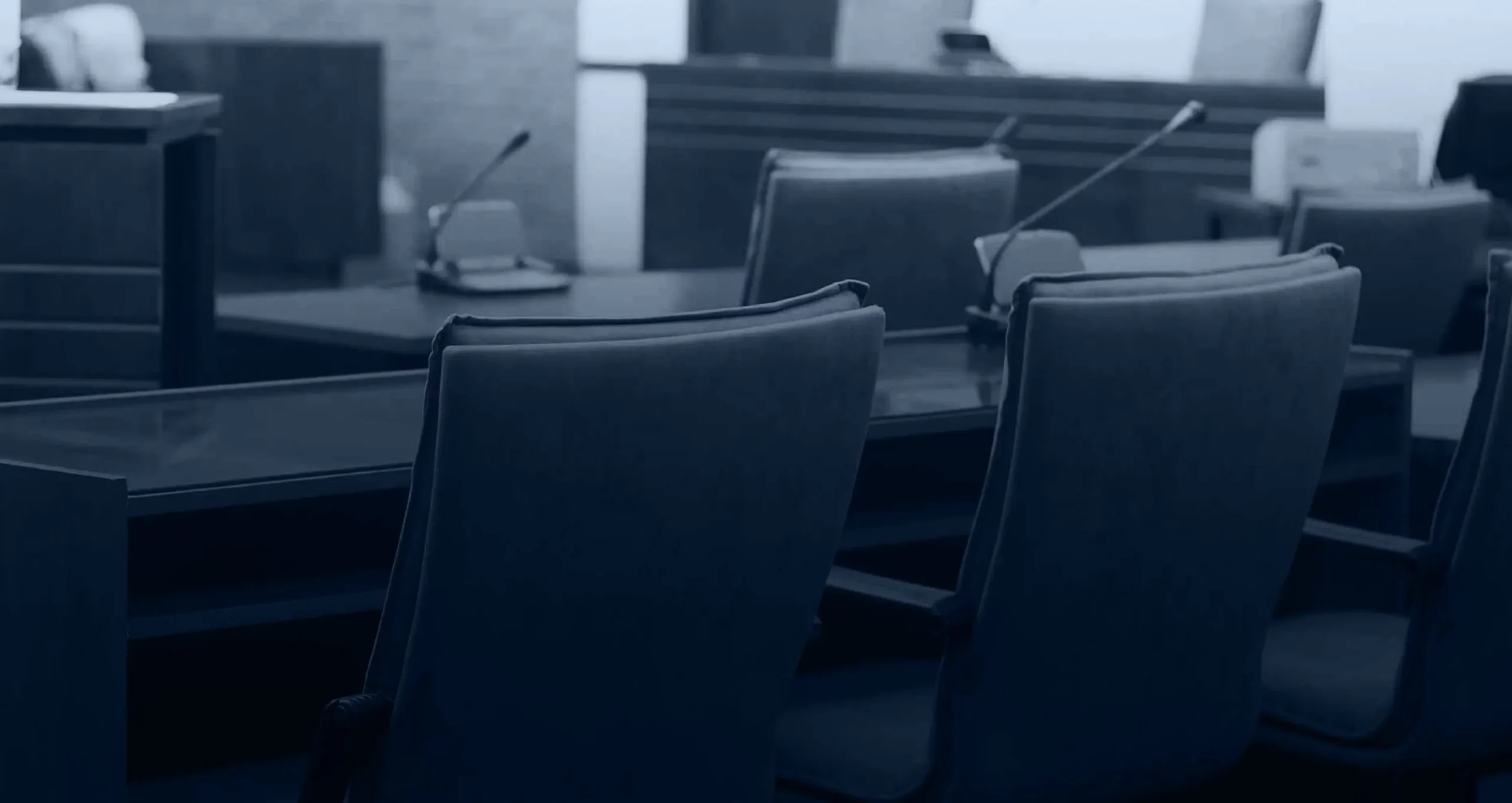Dealing with any surgery can prove incredibly difficult. You may have a long road to recovery in front of you. Your gallbladder removal should ultimately stop many problems you may have had to deal with over the past weeks or months. Unfortunately, in some cases, you may end up facing much more serious complications than anticipated due to botched gallbladder surgery.
Symptoms of a Botched Gallbladder Surgery

In most cases, gallbladder removal goes smoothly. While patients may face many challenges on their road to recovery, in most cases, they will heal and get back to normal soon after surgery.
When something goes wrong during the surgical process, on the other hand, patients may face several dangerous complications.
High Fever
In some cases, a high fever following gallbladder surgery may indicate something has gone wrong. Infection can occur following any surgery, even when doctors take all necessary precautions to help prevent complications. However, you may have a higher risk of suffering serious Infection after surgery if your doctor fails to take adequate precautions during the surgical process or if the hospital does not engage in regular wound cleaning after your surgery.
Pain, Redness, or Bleeding Around the Incision Site
Following your surgery, you will naturally have some pain or bleeding around the incision site. However, if you notice the pain increasing, or you find that you have serious swelling that does not seem to occur due to the normal progression of healing after your surgery, it could indicate that you have suffered an infection. Excess bleeding after gallbladder surgery could also serve as a sign of dangerous potential complications.
Extreme Abdominal Pain
Gallbladder surgery often intends to help remove abdominal pain and discomfort. Unfortunately, some patients who have suffered a botched gallbladder surgery may find themselves in more pain. If you find yourself in extreme abdominal pain after your surgery, it could indicate that the surgeon botched the surgery somehow, leading to extreme complications. See a doctor as soon as possible to report any extremely painful symptoms.
Jaundice
Following gallbladder surgery, jaundice, or yellowing of the skin and eyes, occurs because of bile leakage or because surgeons left gallstones behind in the bile ducts during surgery. Jaundice could indicate, in some cases, that your surgeon botched the surgery, which could ultimately cause you to face more severe complications.
Injury to Surrounding Organs
Sometimes, patients may notice injury to their other organs following botched gallbladder surgery. In some cases, the sharp surgical tools used by the surgeons may nick another nearby organ or structure, including the intestine or bowels. In addition, the scalpel may nick blood vessels, which may lead to heavy bleeding and complications.
Surgeons often notice these problems during the surgery and can fix them as needed. However, in some cases, you may need another surgery to fix the damage done during the previous one. Additional surgery may bring substantial complications and risks, including the need to go under general anesthesia a second time.
How to Know if You Have a Legal Case
Botched gallbladder surgery can potentially take several forms. The side effects you experience may depend on the type of negligence or error committed by the doctor who did the surgery and the challenges you may have faced during the recovery process. Sometimes, even normal surgeries, with no negligence present, may result in additional complications. How do you know that you have a legal case?
A lawyer can help go over the complications you faced after your gallbladder surgery and help you determine whether they resulted from malpractice on the part of your care provider. Working with a lawyer soon after your surgery can help ensure you do not miss out on the compensation you may deserve for botched gallbladder surgery.
A personal injury lawyer may look at several key questions to help determine whether you may have grounds for a medical malpractice claim.
Did a surgeon or medical care provider commit an act of negligence or an error during your gallbladder removal surgery?
To have grounds for a medical malpractice claim, you must first establish that the surgeon or medical care provider committed an error. Generally, that means that the medical care provider took some negligent action that another care provider, under similar circumstances, would not have taken. Most surgeons do their best to avoid potential harm to their patients and act quickly to help protect their patients as much as possible. However, sometimes, surgeons may behave negligently in the operating room.
A surgeon might, for example, fail to exercise adequate care while removing your gallbladder, which could damage the surrounding structures or internal bleeding. You might suffer complications if anyone in the operating room fails to take necessary sterile precautions or takes dangerous actions that could result in your open wound facing damaging exposure to germs.
Your lawyer can help you work with an expert witness to determine what steps your care provider should have taken during your gallbladder removal and how your surgeon deviated from those steps.
Did you suffer complications because of the surgeon or care provider’s negligence?
To file a malpractice claim, you must show that you suffered complications because of the care provider’s negligence.
Suppose, for example, your surgeon’s knife slipped while removing your gallbladder, and you suffered damage to your intestine. Your surgeon notices the problem immediately and repairs it during the surgery, so you do not need further procedures. You do not suffer any additional complications during your recovery process.
Still, your surgeon does let you know about the event to ensure that you watch out for any dangerous symptoms. You go on, however, to recover normally. In that case, you would likely not have grounds for a medical malpractice claim because you did not suffer any complications during the recovery process.
On the other hand, suppose that your surgeon did not notice the error or did not repair it. A couple of days after your surgery, you may notice severe, increasing pain and swelling in your abdomen due to internal bleeding. You may have a higher risk of infection and need to spend considerably more time in the hospital, even once another surgeon comes in to repair the damage. As a result of the damages you sustained, you might have the right to file a medical malpractice claim.
Likewise, you might have the right to file a medical malpractice claim if you discover that someone in the operating theater did not take adequate surgical cleanliness precautions, causing you to develop an infection.
What losses did you suffer from the care provider’s negligence and the complications you faced?
Your lawyer will also want to look at the direct losses you faced because of your surgeon’s negligent actions in the operating room. Frequently, surgical errors result in severe losses for the victim. For example, you might end up with a much longer road to recovery, including additional medical costs.
Going to the emergency room days after your gallbladder removal surgery could cost as much as $3,000, depending on the treatment you need and who provides that care. In addition, you might have spent days more in the hospital, increasing your medical care costs with every day that passed.
In addition, you might have ended up spending more time out of work because of a botched gallbladder removal surgery. You might have needed more time, in general, to recover from your surgery because of the complications you faced, or you might have discovered that you could not work because of ongoing pain. Your ability to return to work after gallbladder removal surgery may depend heavily on your work.
For example, while some people can return to work from home relatively quickly after surgery, those who work in very active jobs or fields may have a harder time taking care of their job responsibilities while recovering.
What Should You Do if You Suspect Your Surgeon Botched Your Gallbladder Removal?
If you have considerable complications after your gallbladder removal surgery, you may wonder if your surgeon botched the gallbladder removal process. If he did, what can you do about it? How can you protect yourself?
Talk to a lawyer.
As soon as possible, after you start to suspect that you may face symptoms from a botched gallbladder removal surgery, talk to a lawyer. A lawyer can help you learn more about your next steps, including how to best navigate any requests for your medical records and establish that you suffered medical malpractice at the hands of your surgeon.
A lawyer can connect with an expert witness generally, an expert in gallbladder removal who can explain the steps the surgeon should have taken during your surgery to keep you safe and what steps the surgeon may have ignored along the way.
An expert witness can prove essential in establishing a medical malpractice case. Many lawyers already have medical experts that they consult with regularly who can help lay out what act of negligence the surgeon who performed your gallbladder removal may have committed.
Get copies of your medical records.
In some cases, your medical records may serve as vital documentation of what actions your care provider did or did not take during your gallbladder removal. Your medical records will also serve as essential documentation of what complications you suffered during the recovery process, making it easier to establish the losses you faced due to the care provider’s negligence.
Do what you can to guide your recovery.
You may need to carefully follow any steps your care provider laid out for your recovery process. In some cases, ignoring those instructions can increase your risk of facing damaging complications as you recover from your gallbladder removal. If you ignore your care provider’s instructions, you may face further complications and limitations.
Document your symptoms.
Keep a journal that lays out the progression of your recovery after your gallbladder removal. In many cases, this documentation may help lay out exactly what complications you faced, including how your recovery may have deviated from the norm. Your journal may also include photos of your incision site, including any redness, swelling, or pus. Furthermore, you may want to document any steps to care for yourself while you recover.
Seek a second opinion if needed.
Any time you feel that your surgeon does not take your concerns seriously or you have not received the high standard of care you deserve following your gallbladder removal, working with another care provider can make it easier to lay your concerns to rest or document any problems with your care. Seek a second opinion to ensure you receive the high standard of care you deserve following botched gallbladder removal.
Did You Suffer Complications Due to a Botched Gallbladder Removal?

If you suffered complications from botched gallbladder removal, a lawyer could help you learn more about your right to compensation and the steps you may need to take to protect those rights. Contact a medical malpractice attorney as soon as possible to learn how to best document the complications you have faced and how to pursue compensation for your injuries.
Contact the Chicago Medical Malpractice Law Firm of Zayed Law Offices Personal Injury Attorneys for Help Today
For more information, please contact the experienced Chicago medical malpractice lawyers at Zayed Law Offices Personal Injury Attorneys today. We offer free consultations.
We proudly serve Cook County, Will County, Kendall County, and its surrounding areas:
Zayed Law Offices Personal Injury Attorneys – Chicago Office
10 S La Salle St STE 1230, Chicago, IL 60603
(312) 726-1616
https://zayedlawoffices.com/
Zayed Law Offices Personal Injury Attorneys – Joliet Office
195 Springfield Ave, Joliet, IL 60435
(815) 726-1616





